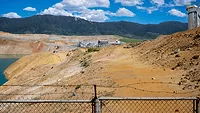Superfund Financing Cut
The administration already had indicated it would scale back spending from the special fund that pays for cleaning up sites where the original polluter has gone out of business or is otherwise unable to pay for remediation. The fund was set up in 1980 with a special tax on chemical and oil companies to clean up so-called orphan sites, or those where the polluter could not be identified or would not pay, as well as for recalcitrant companies and emergency action. Congress let the corporate taxes expire in 1995. Without them, the fund has dwindled from a high of $3.8 billion in 1996 to a projected $28 million next year. President Bush's budget made clear he did not intend to reauthorize the tax. According to the report under the administration's approach, the costs of cleaning up the sites would eventually shift to all taxpayers and would slow down the program.
Regional offices of the environmental agency had asked for $450 million for remedial action at the 33 sites, but the administration has allocated only $228 million. The report identifies five sites for spending reductions in New Jersey, five in Florida, three in Texas, one in New York, and one or two in several other states, as well as in the Virgin Islands. The sites have been in various stages in cleanup over decades.
Like all sites covered by the Superfund program, the 33 that are targeted for reductions are among the most contaminated grounds in the country and pose some level of health and environmental hazards to their adjacent communities. The documents provided by the inspector general did not indicate how these sites were chosen for cuts.
Looking for a reprint of this article?
From high-res PDFs to custom plaques, order your copy today!


